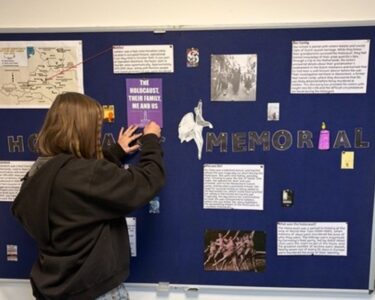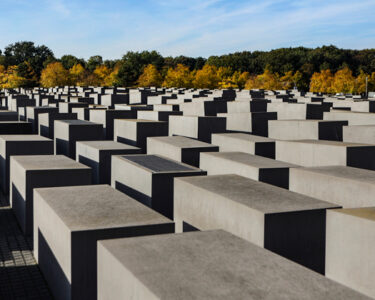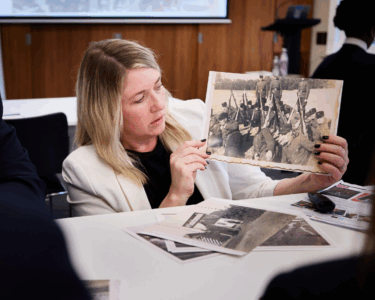Featured on the IOE Blog 27 January 2022
By Tom Haward, Becky Hale and Mary Richardson.
“I have always felt that it’s not appropriate to assess Holocaust work as we do other topics,”
…said a history teacher who participated in the recent national study conducted by the UCL Centre for Holocaust Education in England. This comment reflects a persistent concern about teaching “difficult history” in schools and, as we observe Holocaust Memorial Day today, underlines the value of keeping such content visible in our curriculum. Assessment of challenging content has been a quandary for educators for decades and we wonder whether this view of assessment is specific to teaching about the Holocaust, or perhaps it is something experienced when teaching other ‘difficult’ content, for example the transatlantic slave trade, or the value of citizenship education?
But what do we mean when we describe something as a ‘difficult history’ and how do we explain it? What is difficult about it? Are we talking about the nature of the content, or the educational challenges associated with teaching this material to young people? And how do we distinguish ‘difficult history’ from an array of terms such as emotive history, challenging content, violent pasts, difficult knowledge and controversial content? In exploring such questions, we are examining how teaching about the Holocaust has been described in the past because reports such as the Historical Association’s 2007 TEACH Report suggest that explaining ‘difficult histories’ is challenging for schools, and this leads us to consider how we might assess such content to ascertain the quality and effectiveness of teaching and learning.
Whilst we believe that the term ‘difficult history’ is an appropriate way to describe the study of the Holocaust, the term needs qualification and caveats. Discourses about the value and importance of educating about ‘difficult’ topics have long been studied across a range of disciplines including heritage studies, cultural studies, citizenship and history. Accounts of indigenous groups in Australia, New Zealand, Canada and the US reveal ‘difficult histories’ as centred around the pain and trauma caused by the violence that dominant groups enact on marginalised ones. Such documentation of experience is important because it helps to anchor ‘difficulty’ by acknowledging and documenting the contested, painful and/or violent events through collection of regional, national and/or global accounts of the past.
Situating ‘difficult histories’ across a range of contexts from the local to the global is a useful way to demonstrate how events such as the Holocaust were enacted in specific localised contexts, but also had global repercussions and raise globally relevant questions for all of us about the essence of what it means to be human. With this aim in mind, we propose some ideas for conceptualising them to help our teachers in their practice and present two here – teachers might:
Ask difficult questions of their students and themselves, and question the choices we make that may have consequences for others. In this sense, questions raised in the learning of ‘difficult histories’ have the potential to disrupt ways of thinking about the past, the present, and the identities we hold. Such disruption may be affective, cognitive, or transformative. This is apparent in a number of resources developed by the UCL Centre for Holocaust Education. One is British responses to the Holocaust, which explores how the government responded to the unfolding genocide; some students found the reality of this disquieting.
Review how they teach, because ‘difficult histories’ have pedagogical implications that may be challenging for teachers. Such implications are explored in the UCL Centre’s teacher resources such as Being human?, which suggests a way of unpacking students’ preconceptions of the sorts of people they think might fit the roles of perpetrators, collaborators, bystanders, rescuers and resisters during the Holocaust, and tests their ideas against the evidence.
Exploring an issue like the meaning of ‘difficult histories’ is critical to teachers’ understanding of this dimension of teaching practice and it paves the way to the creation of valuable assessments of student learning. It’s crucial to state that we are not suggesting a traditional exam or test, but an approach to assessment that reflects the pedagogical implications of teaching and learning about ‘difficult histories’ .



